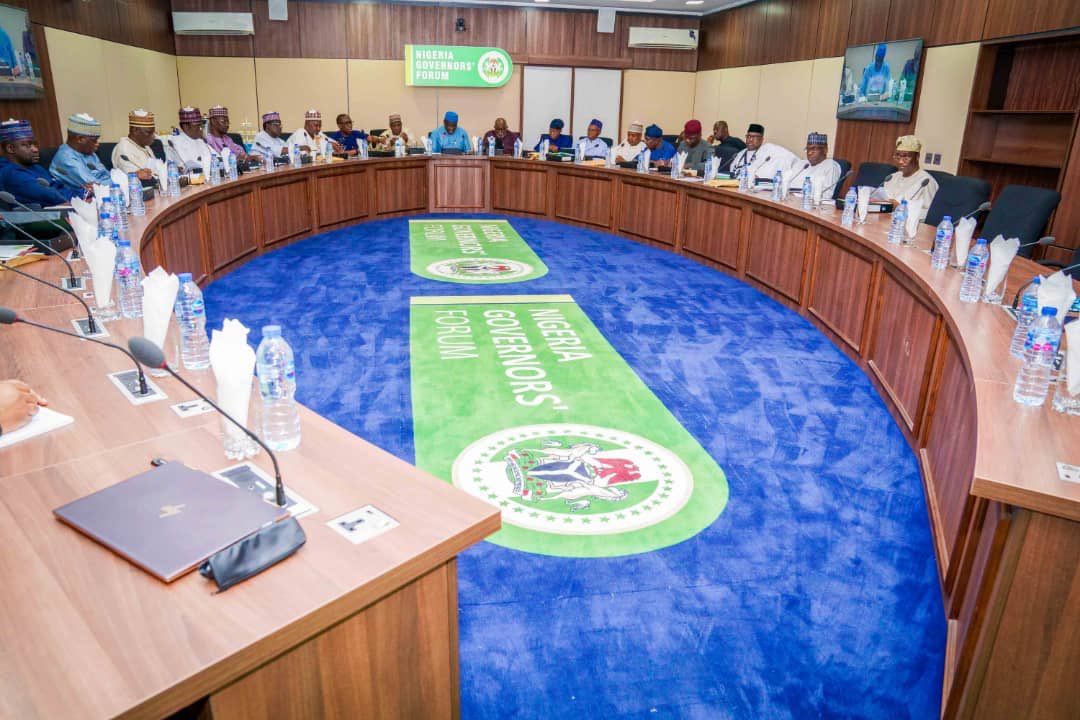
Labour unions have said the existing national minimum wage of N30,000 is no longer viable, citing the steep inflation rate of 29.9 per cent reported by the National Bureau of Statistics in the country.
As a result, early January, the Federal Government launched the tripartite committee responsible for deliberating on the national minimum wage.
Vice President Kashim Shettima inaugurated the 37-member panel at the Council Chamber of the State House in Abuja.
Comprising representatives from federal and state governments, the private sector, and organised labour, the committee’s mandate is to propose a revised national minimum wage for the nation.
Following consultations nationwide, workers have requested varying minimum wage rates across different geopolitical zones. As a result, the Federal Government Minimum Wage Panel has initiated the compilation of reports from public hearings conducted in various zones.
NGF, in a communique issued at the conclusion of its virtual meeting, and signed by its Chairman, Kwara State Governor AbdulRahman AbdulRasaq, dated Wednesday and made available to the press on Thursday, emphasized the importance of incorporating state policing as a crucial amendment in the ongoing 1999 Constitutional amendment process to address a fundamental flaw in the national security framework.
The communique read in part, “The Forum commiserated with the Governor of Delta State, H.E Sheriff Oborevwori, over the communal clash between Okuama in the Ughelli South Local Government Area and Okolaba in the Bomadi Local Government Area of Delta State, and which led to the death of many including 16 military personnel. While condemning the heinous act, members observed a minute of silence for the souls of the departed.
“Members reviewed the progress of the National Minimum Wage Committee and ongoing multi- stakeholder engagements towards agreeing on a fair minimum wage.
“Members urged the NMWC to consider the current realities, individual state peculiarities, and consequential impact on the capacity of the government as well as private sector employers to pay. Members also emphasized the need for proposals to be data- driven and evidence-based.
“The forum highlighted the need for state policing as a critical amendment in the ongoing 1999 Constitutional amendment proceedings to correct a fundamental flaw in the national security architecture.”
The forum reviewed states’ advancement in implementing business-friendly reforms, such as enhancing land administration, fostering Public Private Partnerships, promoting investments, improving infrastructure, and refining regulatory environments through the World Bank’s State Action on Business Enabling Reforms Programme for Results.
It added, “Members discussed the growing concern raised by the United States Embassy over illegal and fraudulent intercountry adoption of Nigerian children by US citizens including systemic fraud and corruption, child- buying, the imprisonment of pregnant women, and unreliable or non-existent documentation. Members pledged to engage the relevant Ministries, Departments and Agencies of government in a bid to address the situation.
“The forum discussed the progress made by states in implementing various business enabling reforms including those aimed at improving land administration, Public Private Partnership (PPP), investment promotion frameworks, business-enabling infrastructure and regulatory environment under the World Bank supported State Action on Business Enabling Reforms (SABER) Program for Result. Members were implored to leverage available support within the program in implementing related reforms to stimulate further economic growth.”





